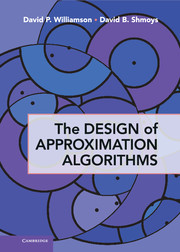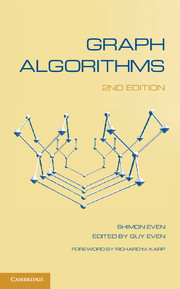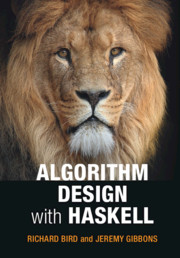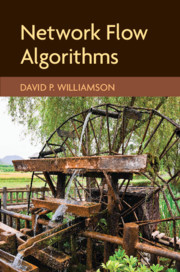The Design of Approximation Algorithms
Discrete optimization problems are everywhere, from traditional operations research planning (scheduling, facility location and network design); to computer science databases; to advertising issues in viral marketing. Yet most such problems are NP-hard; unless P = NP, there are no efficient algorithms to find optimal solutions. This book shows how to design approximation algorithms: efficient algorithms that find provably near-optimal solutions. The book is organized around central algorithmic techniques for designing approximation algorithms, including greedy and local search algorithms, dynamic programming, linear and semidefinite programming, and randomization. Each chapter in the first section is devoted to a single algorithmic technique applied to several different problems, with more sophisticated treatment in the second section. The book also covers methods for proving that optimization problems are hard to approximate. Designed as a textbook for graduate-level algorithm courses, it will also serve as a reference for researchers interested in the heuristic solution of discrete optimization problems.
- Can be used as a textbook, but also as a way for students to get the background to read current research in the area of approximation algorithms
- Explores the heuristic solution of discrete optimization problems
- Explains the principles of designing approximation algorithms, around algorithmic ideas that have been used in different ways and applied to different optimization problems
Product details
May 2011Adobe eBook Reader
9781139065153
0 pages
0kg
86 b/w illus. 121 exercises
This ISBN is for an eBook version which is distributed on our behalf by a third party.
Table of Contents
- Part I. An Introduction to the Techniques:
- 1. An introduction to approximation algorithms
- 2. Greedy algorithms and local search
- 3. Rounding data and dynamic programming
- 4. Deterministic rounding of linear programs
- 5. Random sampling and randomized rounding of linear programs
- 6. Randomized rounding of semidefinite programs
- 7. The primal-dual method
- 8. Cuts and metrics
- Part II. Further Uses of the Techniques:
- 9. Further uses of greedy and local search algorithms
- 10. Further uses of rounding data and dynamic programming
- 11. Further uses of deterministic rounding of linear programs
- 12. Further uses of random sampling and randomized rounding of linear programs
- 13. Further uses of randomized rounding of semidefinite programs
- 14. Further uses of the primal-dual method
- 15. Further uses of cuts and metrics
- 16. Techniques in proving the hardness of approximation
- 17. Open problems
- Appendix A. Linear programming
- Appendix B. NP-completeness.









